#BoycottBali: Who Needs Who?
When deciding where to go for a vacation, you usually have to consider many things: visa, attractions, cost, security. But Australians are reminded to consider one more thing: whether there is capital punishment in the destination.
This can be seen from a boycott movement which swiped Australian social media sphere and had been trending topic in last few days: #BoycottBali.
This movement is related to Indonesia’s firmness to execute two Australian drug convicts, Andrew Chan and Myuran Sukumaran who were arrested in Bali April 17, 2005. They were the main actors of a group of nine Australians dubbed by the media as “Bali Nine”, which attempted to smuggle 8.3 kilograms heroin worth of A$ 4 million from Indonesia to Australia.
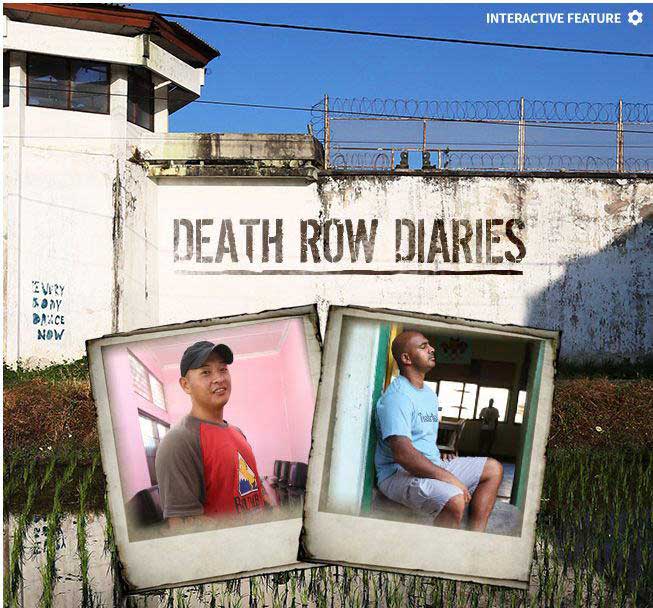
Death Row Diaries of Andrew Chan and Myuran Sukumaran (source: news.com.au)
The clock is ticking, the execution date of the duo is yet unknown but believed to be very soon. Australian government is getting more and more persistent in asking for clemency from the Indonesian president. But the newly elected Indonesian president Joko Widodo is also determined not to grant any clemency to drug convicts. This goes along with his commitment in the presidency campaign to carry out the “war on drugs”. Jokowi, as he is usually referred to, argued that Indonesia is in the state of “drugs emergency”. He quoted staggering statistics that 4.5 million Indonesians are in urgency to be rehabilitated and 40 to 50 Indonesians die every day due to drugs.
Australian public sees Indonesia’s attitude of against-the-world-trend capital punishment as barbaric. While Andrew and Myu are presented to the Australian public as victims of a corrupt judicial system in a third world country. They are getting popularity as “reformed prisoners” or “changed men”. Soon, they will be “brave martyrs who have inspired many people”. The opinions lead to a reminder that “surely everybody has made fool mistakes in their life, and everybody deserves a chance.”
How drug traffickers turn to be martyrs? This may be best answered by the Australian media which created the narratives. Australian media presented very detailed reports about the full-of-twist life journey of the Bali Nine duo, about how they repented and had turned to be new men, about how their old and tired parents struggled to go to Bali to ask for Indonesian president’s mercy, and about how the poor parents had to return to Australia with a wounded heart as it might be their last chance to say goodbye. This type of stories are extremely vivid, humanist, evocating, and successfully triggered sympathy among the readers. But the stories has overwhelmed the fact that the two were drug kingpins who were unfortunate to be caught in an Asian country, which unfortunately still applied death penalty.
Detailed stories to humanize the Bali Nine duo, as far as I concern, cannot be found in any Indonesian media. The two were presented merely as evil drug criminals facing death punishment. Nothing more. Most Indonesian public opinion supported the death penalty to drug convicts, which they view as an essential stronger law enforcement amid “drug emergency”. In Indonesian eyes, it does not matter whether the Bali Nine was attempting to smuggle the heroin from Indonesia to Australia or the other way round. A drug trafficker is a drug trafficker. Full stop.
Australia rejects death penalty for any cause. The last time they executed prisoner was in 1967, but not until 2010 that the death penalty was abolished in all states and territories of Australia. Meanwhile, many Asian countries such as Singapore, Thailand, Malaysia, Vietnam, China and Indonesia, are still very sensitive to drug abuse and impose death penalty for drug traffickers.
Indonesia had imposed a moratorium on death penalty for four years, between 2009 and 2012. But in January 2015, Indonesia had shocked the world by executing six drug convicts, including Brazilian and Dutch citizens. Both countries protested by recalling their ambassadors.
Australia was believed not to follow the suit. Previously, the Australian Prime Minister Tony Abbott, commented that Australia was against death penalty but “the most important thing is to maintain good relations with Indonesia.” The thing he would not do, as he said, was “to jeopardize the relationship with Indonesia.” He claimed that Australia had the same right to apply for clemency, as Indonesia had also begged for clemency for its citizens convicted for death penalty abroad.
But as the execution of Andrew and Myu has been getting closer, Tony seemed to have forgotten about his own statement. He used a threatening tone to remind that Indonesia would be the one suffering more loss if it executed the two Australians, and Australia would find ways to make their displeasure felt.
Abbott might not aware that the way Indonesia managed to release one of its citizens from a death sentence in Saudi Arabia in 2014 was not by violating Saudi Arabia sovereignity by forcing it to change its national law. Instead, Indonesia paid compensation money of 7 million rials (US$ 1.87 million) as requested by the Saudi Arabian court.
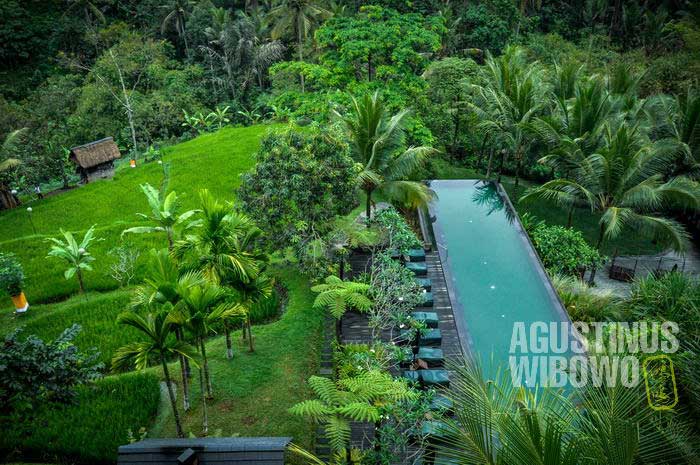
Bali is a favorite tourist destination for the Australians (AGUSTINUS WIBOWO)
Strong reaction was also shown by Australian Foreign Minister Julia Bishop, who claimed to have received numerous complaints by “sickened” Australians, and believed that “Australian people will demonstrate their deep disapproval of this action, including by making decisions about where they wish to holiday.” As the noise got louder, even the UN secretary general Ban Ki-moon had joined the calls for Indonesia to cancel the execution of nine people including Andrew and Myu.
Personally I do not believe that death penalty could solve the extremely complex drug issues. Indonesia also has its own problem of law enforcements, which causes certain know-how drug traffickers managed to maintain their business quite freely. It is also widely known that some drug convicts are capable to run their drug business from behind Indonesian prison bars.
But no matter how corrupt its current law and judicial system, Indonesia has the right to enforce its own law. On any planes to Indonesia, passengers are always reminded about the harsh punishment for drugs violation. Nobody is forced to go to Indonesia, but once you decided to go there, you should know your risk.
From other point of view, I don’t see the Bali Nine case merely as human right issues or debate between capital punishment supporters and abolitionists. If Australian condemnation to Indonesian action was merely based on human rights, then why did not they condemn when in 2008 Indonesia executed Amrozi and the gang? Amrozi and friends were Indonesian citizens involved in the 2002 Bali bombing that killed 202 victims (including 88 Australians and 38 Indonesians). Why the Australian media did not humanize Amrozi and friends as full human characters who had the possibility to repent, to change, to be reformed, and to inspire humanity?
If Australia is determined to change the world by making all countries to give up capital punishment, then why do not they boycott China which executes more than 1000 people every year? Why not the United States which has executed 35 inmates in 2014 and to execute at least 23 in this year? Why not Singapore, Malaysia, Thailand, Japan, India—all of which maintain capital punishment?
If they really respect rights of all humans to live, then why they cold-heartedly returned refugees boats of life-threatened asylum seekers from the warring Middle East countries (with its “asylum-seekers boat turnback policy”), regardless those hundreds of poor souls might get killed by the infamous Indian Ocean waves? And why did they confine those refugees in inhumane detention centers in poor countries like Papua New Guinea or Nauru?
Perhaps, it is because that the victims are not Australians. But if Australia really regard highly the fate of its citizens, then why the government just started to make noise on the Bali Nine case recently? Andrew and Myu have been already in the Indonesian jail for 10 years! During these ten years, where were they?
The fact that Andrew and Myu to be executed by Indonesia is another important thing to notice. In 2005, an Australian citizen of Vietnamese descent convicted as a heroin trafficker was executed in Singapore; but there was no movement in Australia to boycott Singapore. The difference of attitude is, perhaps Indonesia is considered no more than a poor third world country, backward, corrupt, cursed by a messy legal system, thus possessing less rights to carry out their law against citizens of a developed world named Australia.
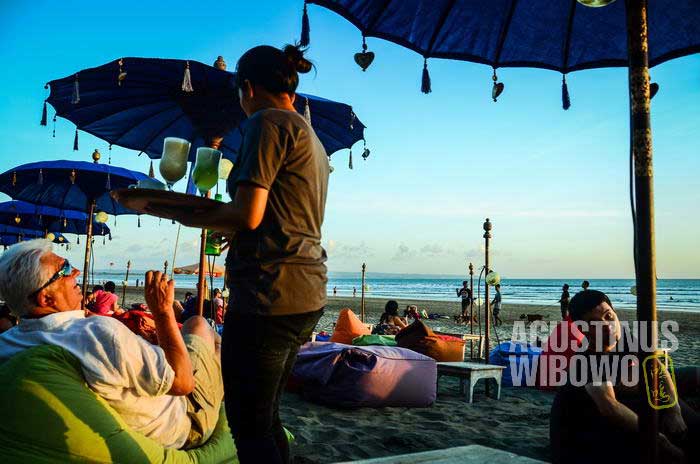
Locals serve foreign visitors. (AGUSTINUS WIBOWO)
The latest reaction of Tony Abbott clearly showed this stigma. Tony Abbott reminded Indonesia about A$1 billion of aid given by Australia to the victims of Aceh tsunami in 2004. He requested Indonesia to reciprocate Australian generosity by letting the Bali Nine duo alive. “I would say to the Indonesian people and the government, we in Australia are always there to help you and we hope that you might reciprocate in this way at this time,” he said.
Anybody with a working logic would hardly believe that this statement was “pointing out the depth of the friendship” between the two countries—the claim Tony later explained to the insulted Indonesian government.
In Indonesian culture, to ask back or to bring up gift you had given in the past is considered rude, no-manner, uncivilized, also self-embarrassing. The angered Indonesian public have compared Tony Abbot to Shylock, the moneylender in The Merchant of Venice who demanded a pound of flesh when his rival defaulted on a loan. They also organized #CoinforAustralia, a campaign of coin-collection to “repay” the $1 billion in Australian aid given to Indonesia after the 2004 tsunami. Indonesians see coins as “worthless”, thus deliberately giving coins should be considered as an insult.
The inequal relation between the two countries first struck me in 2005, when Australian Schapelle Corby was arrested in Bali by Indonesian police for bringing in 4.2 kilograms of ganja. This immediately aroused a wave of public sympathy and anger in Australia. It seemed that it was impossible for the public to accept that a young, good looking, innocent white woman to be sentenced to death by a third world country. The overreaction also caused the Indonesian embassy in Canberra was closed due to receiving anthrax attacks sent via parcel post. Australian television also broadcasted Corby’s case court, live. I remember an Australian commentator at that time gave insulting remarks, by labeling Indonesian judges as “monkey” as they did not speak English.
In Australia, more than 100,000 people signed a petition that Corby should be freed. While in Indonesia, the public demanded that the “Ganja Queen” should be executed to death as soon as possible. Corby eventually was sentenced to 20 years in prison, but was then released on parole in 2014 after serving 9 years in prison. This happened when Indonesia was under former president Bambang Susilo Yudhoyono whose foreign policy was “thousands friends, zero enemy”, seen by Indonesian public as Indonesia’s inability to face Australian pressure.
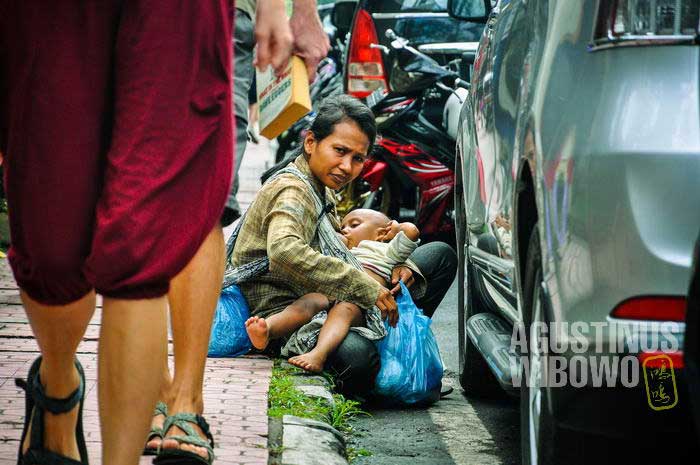
Bali is not only about paradise. (AGUSTINUS WIBOWO)
The year 2005 was a special year for Australian drug cases in Indonesia. There was another Australian lingerie model being caught by Indonesian police for possession of two ecstasy pills, but suddenly confessed that she has converted to Islam and appeared in court wearing a full burka.
The two “white Australian women” cases overwhelmed the Australian media, but the Bali Nine case received minimum media coverage—probably because all the group members were male and many were non-white, thus not attractive enough to stir up media consumers’ emotion.
Interestingly, all the cases happened in Bali. Drug is closely related to tourism, which is now unfortunately almost becoming the only life vein of Bali.
Australia is the largest source of visitors to Indonesia. In 2014, Indonesia was preparing to roll out the red carpet to welcome the one millionth Australian tourist, by offering visa-free facility for Australian visitors. But in January 2015, Indonesia abruptly postponed the offer, inferring this has something to do with Australian behavior.
Knowing well that Indonesia benefits much from Australian tourists’ money, Australia also uses tourism as a tool to press Indonesia. The #BoyccotBali movement was a hope (a false fantasy?) that if less Australians go to Bali then it will bring a huge loss to Indonesia so that they will change their law and free the Australian citizens from death penalty.
Tourism is a modern form of imperialism. Bali is a clear example of this. Bali has changed much of its original face just to please tourists, so they may benefit more from tourists’ money. Lush and green terraced rice fields have been dotted and fenced by scattering hotels and villas. The most charming sceneries are now hidden inside five-star hotels and available to paying guests exclusively. The tourism industry’s craving of land resource seduced Balinese people to get quick wealth by selling their lands, many were cheated to sell at a very low price. By now, land use is very strain in Bali, that many of the locals cannot afford to buy back their land, and land has caused tensions in many communities. Competition to gain tourists money also caused tensions between villages to win their claims of possessions on some tourism spots. We have not mentioned about the irreversible natural destruction caused by the tourist industry.
Tourism also has flourished nightlife, prostitution, petty crimes, free sex and drugs, especially in Bali’s low-budget tourist areas like Kuta. This has started even in the 1970s when the paradise-searching happy hippies openly conducted their sex rituals on the beaches and alleys of the city.
Tourism has helped the survival of many of Balinese customs, but at the same time reducing its value. Originally sacred dances exclusively for the gods are now danced in the corner of restaurants, as an ambience element for tourists enjoying their dinner. The tourists, busy with their dinner or their companions, hardly put attention to the details of the dance, not to mention respecting its sacred value. Some sacred rituals are also available for tourists who pay. Some are even exclusively held for the tourists.
The local mentality has been imprisoned by tourism. Yes, they are trying hard to preserve their culture and their identity, but if you talk deeper with them, some will tell you that traditional culture is important so that “bules (the white, foreigners) will keep coming to Bali”.
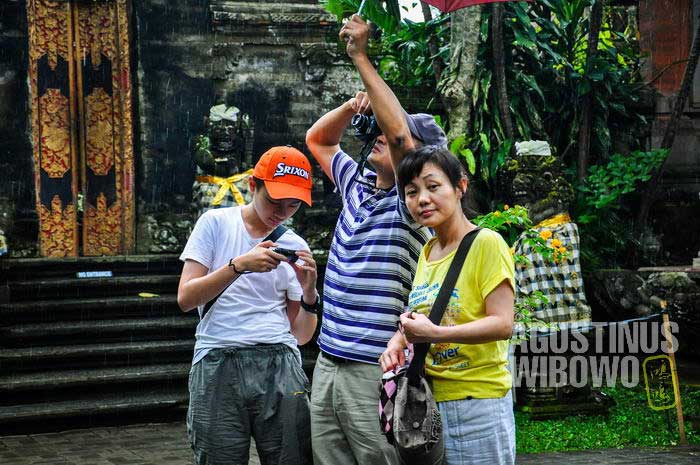
Mainland China is soon replacing Australia as top origin of visitors to Bali (AGUSTINUS WIBOWO)
Yes, tourism has brought improvement to living standard in Bali, also flourished its economy and cultural life. But, this total dependence to tourism is unsustainable, and dangerous.
In December 2014, two Australian tourists were beaten by a group of Balinese villagers. The two men were found urinating a local shop and a temple of worship in a villager’s house. When reprimanded, the drunken tourists attacked and threatened to kill the local house owner. This triggered the mass fighting. Police managed to catch the two tourists. But the villagers, including the house owner who was beaten by the tourists agreed to free the tourists. They were not imprisoned. I have heard, the local communities worried that if this case to be prolonged, it would scare foreign tourists to come to Bali.
Bali in my eyes is a curse of paradise. Bali was first labeled as “paradise” by western visitors, starting from those in the 18th century, emphasized by the hippies of the sixties, and now an eternal mantra of the tourism industry. This paradisical fantasy has imprisoned the Balinese themselves, believing that they would not be able to survive without foreign visitors (which they refer as misters or bules—“albinos”, neglecting gender and skin colors of the aliens). At a glance, the relation between tourists and their paradise seems a mutualism symbiosis, but in fact it’s a predatory one. Paradise seduces tourists, and tourists reduce paradise.
Then, who are the one really enjoying the paradise of Bali?
First, of course, the paradise-searching tourists from all over the world. Specially for Australians, Bali has appeared as a super cheap paradise available just in the backyard. Then those investors and hoteliers and boutique owners and restaurant owners and airlines owners, most of which coming from outside Bali (foreigners or non-Balinese Indonesians), who are benefited by the huge influx of tourists to Bali.
But the Balinese themselves, having most of the best parts of their homeland being taken and restricted by the tourist industry, now have to survive by following the game of the tourism industry. Most of their jobs are linked to tourism: hotel staffers, tour guides, drivers, souvenir vendors, masseuse, translators. They still have to face fierce competition from people from other islands of Indonesia flooding Bali eager to share the opportunities offered by tourism business.
With current situation of over-dependent to tourism, the chance of Bali to get rid of this evil circle is more and more unlikely. It is worsened by the “colonized mentality” of the government and the people. The governor of Bali has warned the central government in Jakarta not to execute the Bali Nine duo in Bali, as he feared that Australian tourists would not visit Bali anymore. Responding to the #BoycottBali movement, plenty insulted Indonesian netizens responded by posting various photos depicting beautiful sceneries in Bali, seemingly to emphasize the “heavenly” Bali, as if to lure boycotting foreign tourists to change their mind and come to Bali.
But, why? If the world needs to be convinced that this country is beautiful enough to be worth visiting, then perhaps it is not really worth visiting. If those “misters” choose not to visit Bali, then let it be, as they are entitled to their choice and their principles.
The inferiority. The helplessness. The craving of recognition. It’s not unlike an elegant wife suddenly losing all her confidence and dignity in the face of a divorce threat.
I give all my thumbs up to Superman Is Dead (SID), a punk band from Bali, which commented on #BoycottBali movement without any tracks of inferiority:
“They thought they were a king, and that all could be bought with dollars. Bali do not rubbish tourists like that. No country needs rubbish. RESPECT! THAT’S WHAT WE ALL NEED!”
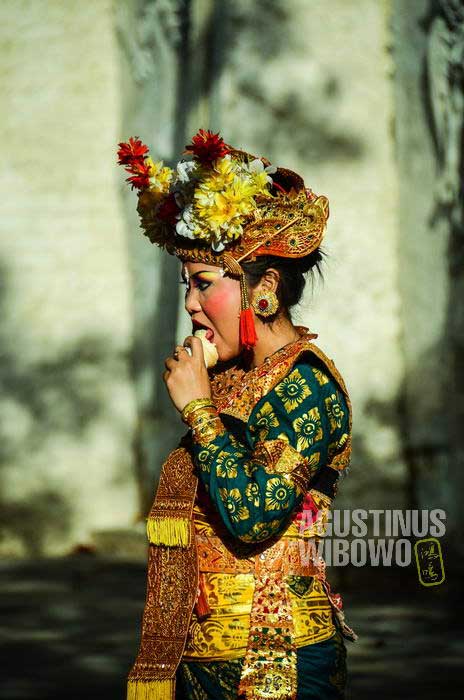
Life is not only to please and serve others. (AGUSTINUS WIBOWO)





it can not be argued that indonsesia has the right to their own set of laws (albeit corrupt and inconsistent) – it also can not be argued that people who do not agree with these laws and corruption will cease to financially support this country – get over it